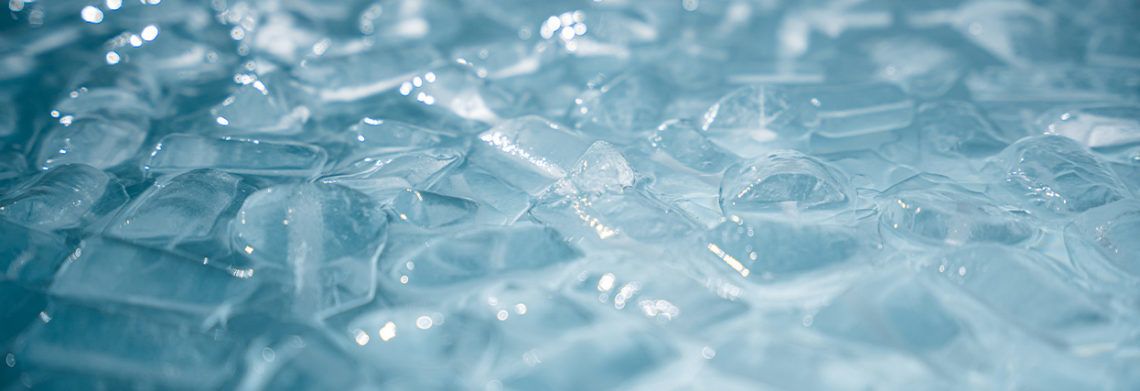Subscribe to our newsletter
Receive news and benefits on health and wellness.

SHA Magazine Health & Beauty
Plunging into a bathtub of freezing water (-3°C) is not pleasant. In fact, it is unpleasant and stressful. We’re not breaking any new ground here, but if we tell you that it’s an effective therapy for de-stressing, it might start to sound a little more novel.
“Low doses of stress can be beneficial because they trigger adaptive responses that improve the body’s resistance and resilience. The body is forced to strengthen its defence and repair systems in response to stress, which can lead to greater resistance to future challenges,” explains Dr Mariel Silva, an expert in Integrative Medicine and Digestive Health at SHA Wellness Clinic.
Ice baths follow the principles of hormesis, which is a phenomenon that relates the stimulus and its effect in a different way. “At small doses a product has a favourable effect, at higher doses it could be harmful. Homeopathy is a discipline that is based on this principle, while pharmacology is usually based on linear kinetics (higher dose, better response) in the so-called therapeutic range”, explains Dr Vicente Mera, head of the Internal Medicine and Well-ageing Unit at SHA Wellness Clinic.
Hormesis is a biological principle that describes how low or moderate doses of a stressor or toxicant can have a beneficial effect on an organism, while high doses of the same agent can be detrimental.
“In other words, it refers to an organism’s adaptive response to a stress or challenge that, in low amounts, can trigger a positive response, such as improved resilience and health. It is a principle that is applied in various contexts, from biology and medicine to toxicology and psychology. The central idea is that exposure to a stress or challenge, within certain limits, can induce adaptive and beneficial responses, which can contribute to their health and resilience rather than cause harm,” says Dr Silva.
Dr Mera cites some examples of hormesis from everyday life: “A short headline in a newspaper makes an impact, while a long article, if one is not an expert on the subject, is usually boring. Not getting a small amount of sun can be harmful to health, as it increases the risk of fractures due to osteoporosis; but getting too much sun is also harmful because it can lead to keratosis and malignant melanoma of the skin”.
“Lately we are realising that small doses of stress have a hormonal effect that motivates, but too much stress leads to a blockage. Similarly, when retirees suddenly become unstressed, they begin to lose interest in life and may become depressed or develop physical and mental illnesses, including accelerated ageing. So it is recommended not to give up work completely and to gradually reduce responsibilities,” adds Dr Mera.
Therapies based on the principle of hormesis
Moderate physical training is a stress on the body, but it triggers positive adaptations, such as muscle strengthening and improved cardiovascular health. However, too much exercise may cause exhaustion, chronic stress and muscle injuries.
Exposure to cold in the form of ice baths is a good example of how certain doses of stress can help combat stress. “When we are exposed to cold in a moderate and controlled way, as in hot and cold water contrast therapy, our body responds by activating a number of mechanisms to maintain body temperature. This moderate exposure to cold triggers adaptive responses, such as activation of brown adipose tissue that burns calories and regulates body temperature. It also improves resistance to stress in general. However, excessive exposure to cold, such as hypothermia, can be dangerous and harmful to health,” adds Dr Silva.
Calorie restriction is another interesting example of hormesis. Studies have shown that moderate calorie restriction in the diet can have beneficial effects on health and longevity by activating metabolic and cellular repair responses that improve resistance to ageing and certain diseases.
Dr Silva says there is strong scientific evidence to support the idea of hormesis in a number of contexts. “Studies in biology and medicine have shown how exposure to low doses of stress, moderate exercise, calorie restriction and exposure to cold can trigger beneficial adaptations in the body, including improved endurance, cellular repair and longevity. For example, it has been found that calorie restriction in moderate doses can increase life expectancy in animal models and improve metabolic health in humans”.
“In psychology, exposure to controlled psychological stress has been investigated as part of exposure therapy in the treatment of anxiety disorders. Studies have shown that gradual, controlled exposure to stressful situations can reduce anxiety and strengthen emotional resilience,” Silva adds.
Dr Mera quotes Paracelsus, a Swiss alchemist and medic who lived in the 16th century: “All things are poisons, for there is nothing without poisonous qualities. It is only the dose which makes a thing poison”. Dr Mera adds: “The problem with stress as a motivator is finding the right dose that is positive. This is very difficult to assess and more studies are needed to corroborate this hypothesis”.
Receive news and benefits on health and wellness.
